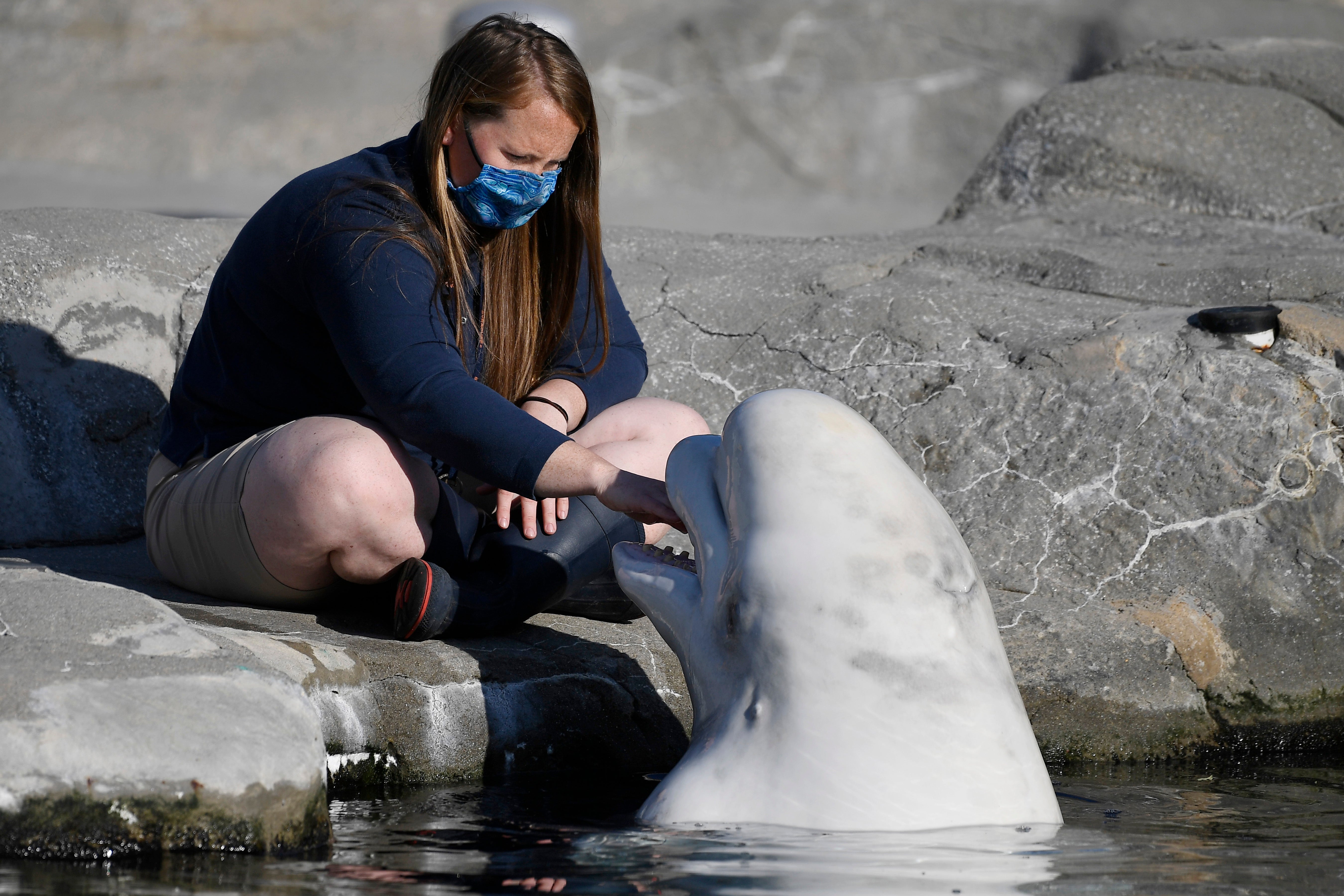Belugas to arrive at Mystic Aquarium after legal battle
Three Beluga whales have almost arrived at their new home in a Connecticut aquarium after a legal battle to import them and two others from Canada

Three Beluga whales are almost at their new home in a Connecticut aquarium after a legal battle to import them and two others from Canada
The whales were flown from Ontario to Connecticut on Friday, secured in special stretchers inside individual tanks and accompanied by a veterinarian and other marine-life experts. They were still going through customs around 6 p.m.
The remaining two Belugas are set to arrive at Mystic Aquarium early Saturday from Marineland in Niagara Falls Ontario.
Government officials from Fisheries and Oceans Canada last month approved the export of the whales, seven months after U.S. officials approved the move.
Connecticut-based Friends of Animals and other activists sought to block the transport in a lawsuit last fall against the U.S. Commerce secretary and National Marine Fisheries Service which had approved the research permit. A federal judge in March declined to issue an injunction.
The whales, which range in age from 7 to 12, were born in captivity and officials said they cannot safely be released into the ocean.
Mystic officials said the five whales left an overcrowded habitat with about 50 other Belugas in Canada to join three other Belugas at the center of important research designed to benefit the species in the wild.
The animals will be trained to voluntarily give blood, saliva, blowhole air and other samples in exchange for rewards.
“Having eight animals certainly helps when trying to draw conclusions with the research,” said Tracy Romano, Mystic's vice president of research and chief scientist. “It's priceless to be able to work with trained animals and be able to get biological samples on a regular basis and all of this will help us interpret what we're seeing in the wild and help with the management and conservation of the species.”
Subscribe to Independent Premium to bookmark this article
Want to bookmark your favourite articles and stories to read or reference later? Start your Independent Premium subscription today.
